Neoclassical Architecture: From Greece to the World
Discover how ancient Greek architecture inspired...
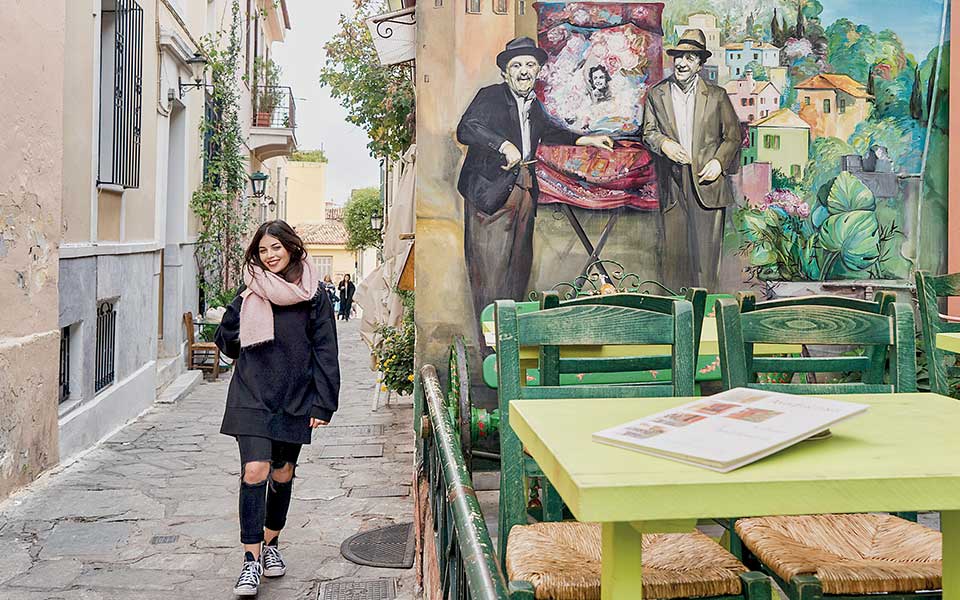
Strolling around Plaka in the winter, free of the tourist crush and the heat.
© Perikles Merakos
If Athens in 2018 had a soundtrack, it would be a loop of the rumble of suitcases being rolled along on sidewalks, public squares and metro concourses: the noise from millions of travelers flocking in for a rewarding city break. However, the road to this tourism boom hasn’t always been strewn with rose petals for the Greek capital. It may be one of mankind’s greatest cities, but it faces stiff competition from destinations like Rome, Istanbul and Barcelona, not to mention the more than 150 picture-postcard Greek islands so close at hand.
No one could have predicted today’s tourism explosion a decade ago, when the crisis first made its presence felt, shutting down hotels and shops in the city center. But international air links have increased and passenger arrivals at Athens Airport have soared from below 2 million in 2013 to 4.8 million in 2017 and 5.1 million even before the end of 2018.
The tourism season has expanded as well and now runs from May to late November. Overnight stays in the first half of 2018 came to 13 million, with solo visitors gaining ground, too. Athens has topped many travelers’ lists of favorites, particularly those from Asia. Arrivals from India, for example, are up 114 percent compared with last year.
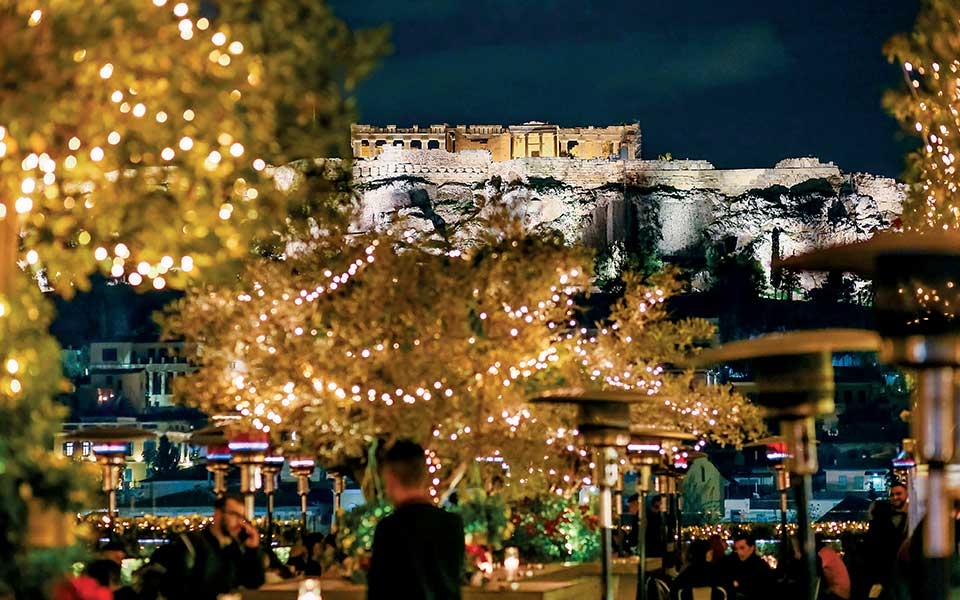
Athens by night. It’s no surprise that 90.5% of departing tourists this year said they would like to come back.
© George Adamos
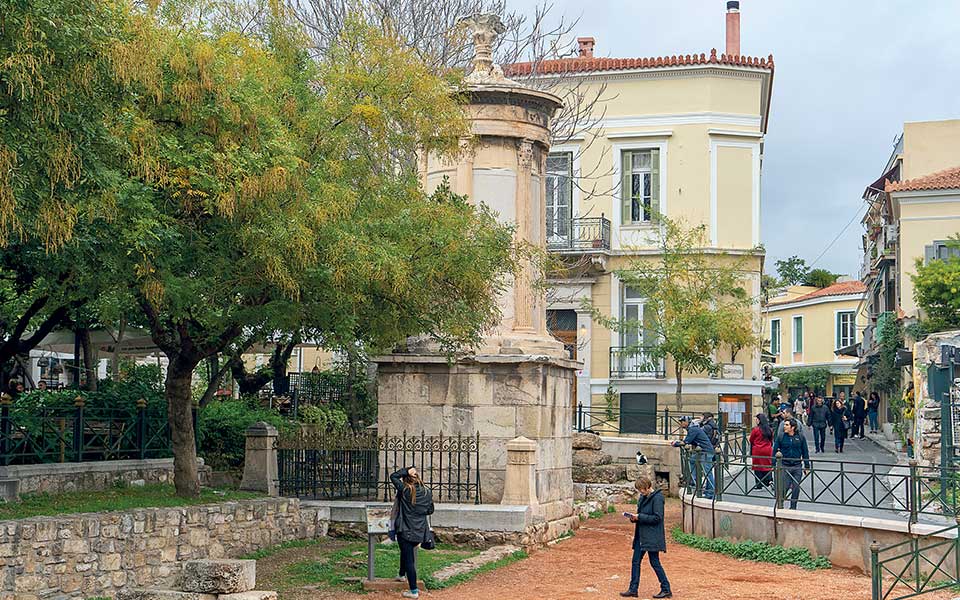
The Choragic Monument of Lysicrates.
© Perikles Merakos
So what’s bringing all these people to Athens – and why now?
For decades, Athens meant just one nine-letter word for foreign travelers: Acropolis. A one-day visit before or after a jaunt to the islands was enough for them to tick the Greek capital off their bucket list. Besides the Acropolis, they may also – at best – have taken a walk around Plaka and a snapshot of the changing of the guard at Parliament before having a souvlaki meal in Monastiraki, but that’s all.
Although more than 80 percent of last year’s visitors in the 30-50 age group said they chose the city for its archaeological sites and museums, it is no longer the past alone that makes Athens attractive. According to the latest survey on tourist satisfaction and the performance of Attica hotels (carried out by the Athens Hoteliers’ Association), foreign visitors are also attracted by the city’s modern cultural life, its residents’ attitude, its entertainment and leisure scene, and its hotels, which received an overall score of 8.5 out of 10.
While most agree that there is, indeed, room for improvement – particularly with regard to the upkeep of buildings, repair of sidewalks and English-language signposts for major tourist attractions – 90 percent of the departing visitors interviewed expressed their intention to return, saying they feel there is a lot more they didn’t see.
Of course, even the attractions they did manage to see can always improve in time for their next visit. The Acropolis Museum, for example, ranked sixth in the world by TripAdvisor and expected to break 2017’s record of 1.7 million visitors in 2018, will be granting public access to a new level in 2019. This will be a one-of-a-kind experience, a tour among the rich collection of artifacts found beneath the museum that will reveal much about life in ancient Athens.

Coffee break at the Third Place café.
© Perikles Merakos
It’s obvious, even to visitors, that Athens is changing, and the real estate market presents fertile ground for tourism investment opportunities. The smallest of studio apartments are proving successful Airbnbs, new micro hotels are springing up all over the city center, and the rebirth of Syngrou Avenue as a bridge between the historic center and the Stavros Niarchos Foundation Cultural Center to the south is underway.
The city also got a handful of new five-star hotels in 2018, including the Athens Marriott and Greece’s first Grand Hyatt – the group’s second in the EU. “There is a great deal of demand for the purchase of existing properties in Athens by domestic and foreign investors. There is a pressing need to develop old buildings in the service of tourism. What is positive about it all is that Athens’ existing building stock is being used, so there is no need for new construction,” says Ria Vogiatzi from Elastic Architects. The firm is responsible for some of Athens’ new hotels, like the Coco-Mat Athens BC and the Niche, which are expected to be completed within the next few months.
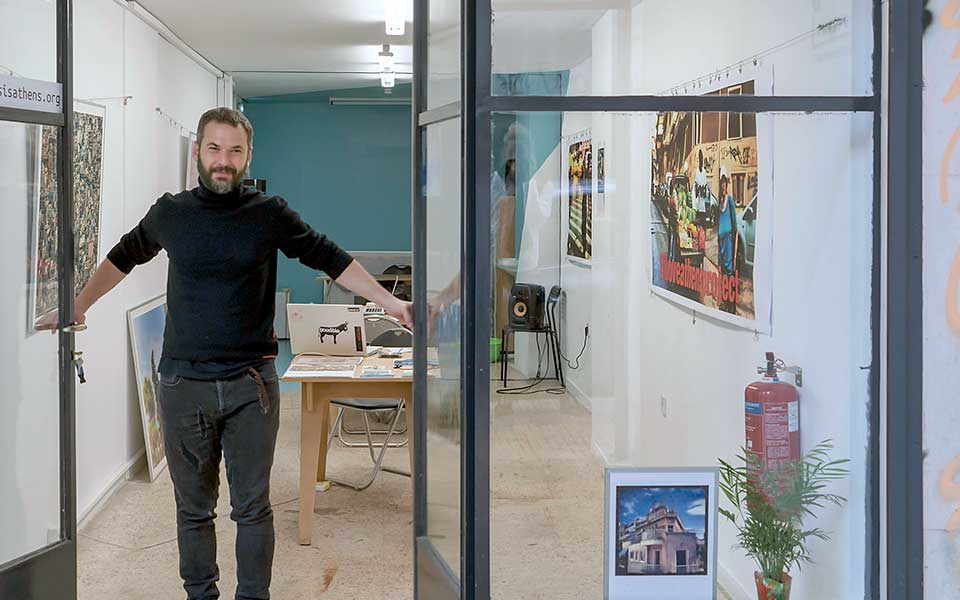
The “I Love Athens Project” space at Theatrou Square, an urban area undergoing a renaissance.
© Perikles Merakos

Setting out for a tour on a wooden COCO-MAT bike.
© Perikles Merakos
Alongside such investments, the city is also seeing small neighborhood interventions, such as POLIS², a City of Athens initiative aimed at reviving abandoned buildings while boosting community groups, businesses and art cooperatives. The program includes small subsidies, while the municipal authority provides the space for initiatives and activities that are free to the public. As a result, parts of the capital that have suffered from neglect for years are on a path towards renewal.
One of these is the neighborhood of Kypseli, whose municipal market has been brought back to life in a historic, early 20th-century building. Another is Theatrou Square, behind City Hall, until recently an overlooked area. Today, it’s home to a multilingual library and games space called Book and Play, where locals and tourists can be found hanging out together. On the opposite corner of the square, visitors can sign up for role-playing games that take place in different parts of the city, while right next door they can book cycle tours with wooden Coco-Mat bicycles.
Nearby, the “I Love Athens Project,” which celebrates the Greek capital’s history and attractions through photography, is another interactive option. These initiatives and others, such as “Curing the Limbo,” which connects locals to foreign migrants and refugees trying to learn Greek, are what earned Athens the title of European Innovation Capital 2018, an important recognition of the effort and the progress it has made in spite of the challenges it faces.
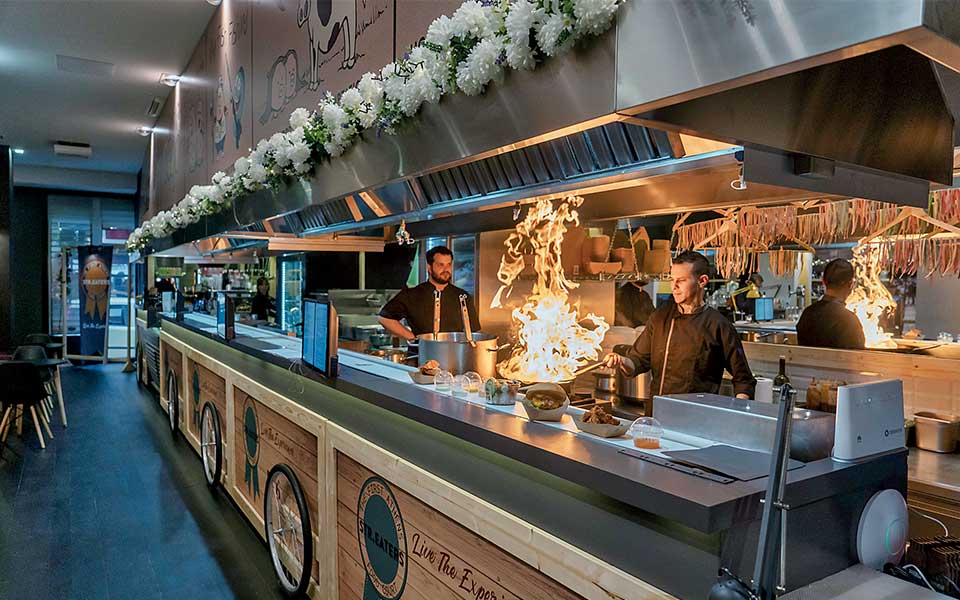
Str.Eaters, a new food court at Karytsi Square.
© Perikles Merakos
“Athens used to be a secondary destination for the art crowd, but this has changed in recent years,” says Polydoros Karyofyllis (aka Poka-Yio), artist and co-founder of the Athens Biennale. “Now they come for its contemporary culture, to feel that they’re right in the thick of things.” The Biennale here just drew to a close, drawing praise from the public and critics alike. “With work that stars Kim Jong-un and jockstraps, artists give us a glimpse of a brighter future,” The Guardian wrote in its review of the 6th Athens Biennale, which brought together 100 artists, theorists and multimedia creators.
The Greek National Opera has also been getting international attention. It expanded its repertory in 2018, with a full program for both its stages, and enjoyed sold-out performances almost across the board. One of its major achievements this year has been a sharp rise in the number of tourists attending performances. “Our operas have been presented with English surtitles; our program has included important partnerships, such as with London’s Royal Opera House and Berlin’s Komische Oper; and we’ve had special guest stars like Anita Rachvelishvili at the Odeon of Herodes Atticus. The Greek National Opera has become a real attraction for foreign visitors to Athens,” says the GNO’s artistic director, Giorgos Koumendakis.
Among the 2019 GNO productions already announced, highlights anticipated to attract large foreign crowds include “Lady Macbeth of Mtsensk,” directed by Fanny Ardant and with costumes from four-time Oscar-winner Milena Canonaro (May), as well as “Norma” (June) from the famous Barcelona-based collective La Fura dels Baus, with acclaimed soprano Carmen Giannattasio in the title role.

Ice cream delight at Dickie Dee.
© Perikles Merakos
You can eat well and affordably in Athens, whether in a small local taverna or a Michelin-starred restaurant. For many well-known chefs, 2018 was all about street food; one of the strongest global culinary trends right now. Athens acquired its first food court, Str.Eaters, with eight different food stations, a cocktail stand, a wine-lovers’ corner and a pop-up store for shopping therapy.
If you’re one of those foodies who likes to post a snap of a dish on social media before digging in, you’ll be happy to know that Athens right now is more Instagrammable than ever before. From the perfect ice-cream cone of Dickie Dee, topped with a ring of cotton candy, to the brilliant purse-shaped treat named the Clutch and designed by chef Dimitris Chronopoulos at CTC, appearance is key when it comes to desserts.
As far as coffee is concerned, Athens deserves credit for the attention being paid to specialty coffees; the numerous barista awards the city has taken home from international competitions over the past six years are testament to the quality of brews and service on offer.
Recycling is also gaining ground, and while it may take time to wean the city’s cafés off plastic cups and straws, a good first step is the Stopotirimou (“in my glass”) initiative, whereby dozens of cafés in the city center (including Third Place and Zoe’s Premium Latteria) offer a ten percent discount if you bring your own drinking vessel.
Athenians don’t really like to dance. You’ll usually find them leaning against a cool bar, like the one at Odori Vermuteria di Atene or at brand-new Senios, nodding to the beat. Nevertheless, groups of local revelers are usually welcoming and it’s easy to make new friends, as often happens at The Clumsies or Baba Au Rum.
There, sipping on cocktails made with Greek spirits, you can find your own answer to the question posed by Forbes – “Is Athens Europe’s Most Exciting Cocktail City?” – just one of several major articles on the city appearing in the foreign press this year. The New York Times looked at Athens and its new culture and entertainment scenes in the wake of the crisis; the Guardian presented it as the “new place to shop couture”; and the Qantas in-flight magazine featured an extensive piece on “How to see Athens like never before.”
In a city in the throes of change, every visit is a new experience. Even scenes that appear to remain the same can present new pleasures if viewed from a different perspective, at a different time of the year. Just take the Acropolis, for example: Sure you’ve admired it in the sparkling summer light, but have you seen it lit up on a winter’s night from a heated rooftop bar while sipping a glass of wine?
Discover how ancient Greek architecture inspired...
Among the many city eateries offering...
Between Strefi and Lycabettus Hills, Neapoli...
Experience Spetses in its most enchanting...